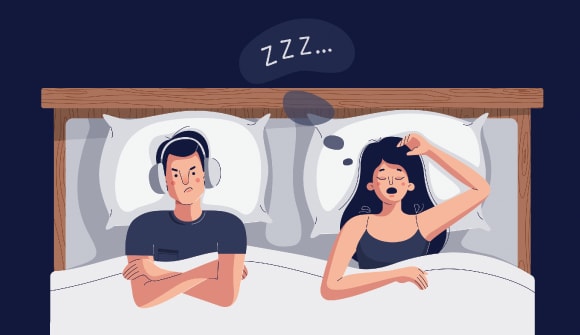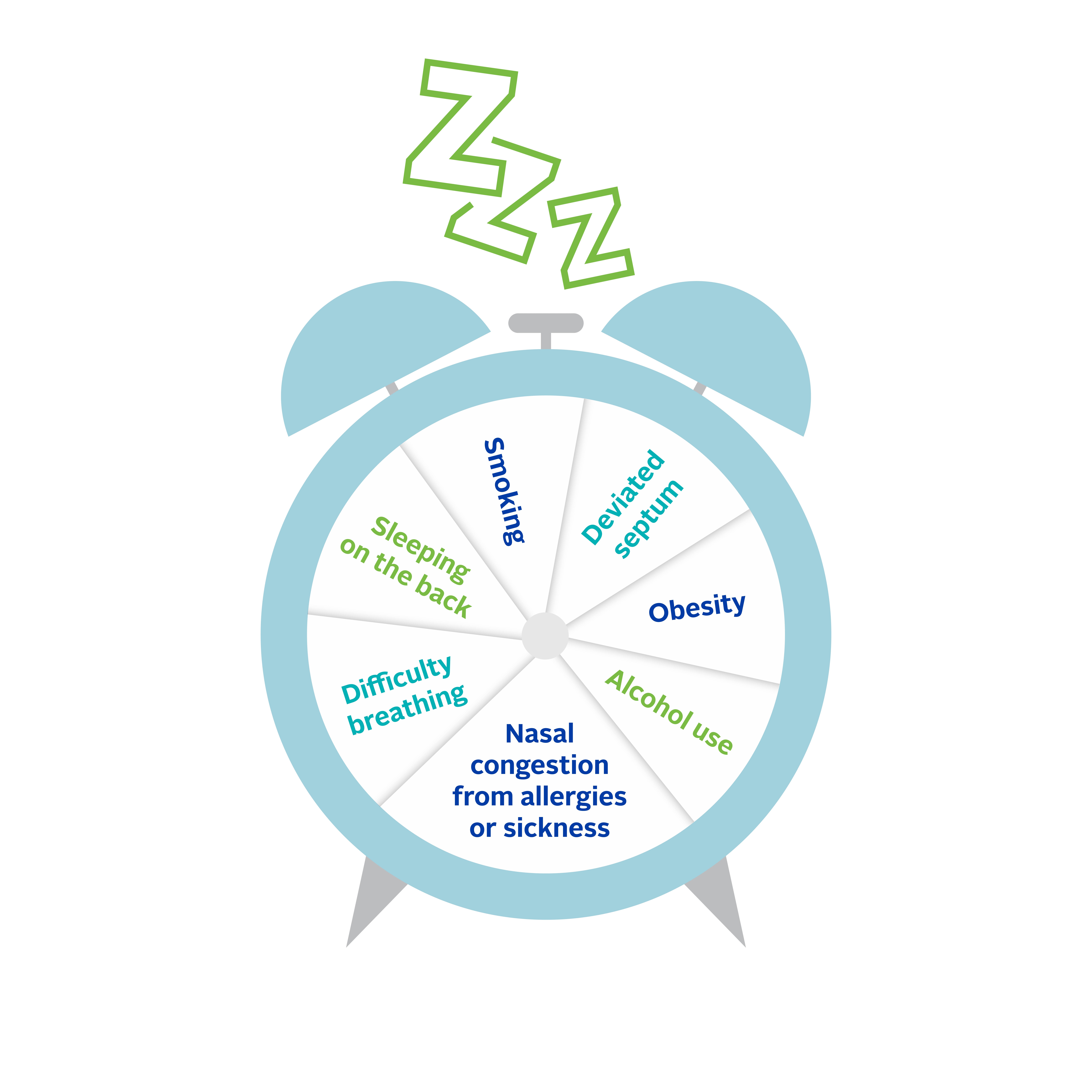Press snooze on snoring
Lifestyle changes and over-the-counter solutions to try.

Sawing logs, calling hogs and leading the snorechestra. Snoring is so common that we’ve come up with countless ways to describe it. For many people, the nighttime noise can come and go as a result of congestion or sleep position. But for others, it’s a sign of a more serious sleep disorder.
For people who just snore from time to time (or mildly every night), there are a few changes you can make to your sleeping habits to snooze more silently, and over-the-counter products that may help.
Common causes of snoring
Peter Nassar, MD, a sleep medicine specialist for Baptist Heart Specialists and medical director of the Jacksonville Sleep Center, said some of the usual suspects behind snoring include:
- Nasal congestion from allergies or sickness
- Sleeping on the back
- Difficulty breathing
- Smoking
- Alcohol use
- Obesity
- Deviated septum
Naturally, the potential cause of your snoring should help you decide what treatments to try, like taking a decongestant before bed or sleeping on your side.
“Anything that increases resistance to airflow through your nose also increases the collapsibility of your airway,” said Dr. Nassar. “For example, smoking actually causes inflammation, and all those tissues in the airway and nose become red and inflamed. That swelling reduces the size of the airway by 10% to 15%. With alcohol, there tends to be more relaxation in the airway and it exacerbates snoring and sleep apnea.”

During sleep studies, Dr. Nassar often sees that patients with sleep apnea have double the number of apnea events (pauses in breathing) when sleeping on their back versus on their side. He often recommends positional therapy, which involves sleeping with a special pillow that prevents patients from rolling onto their back while asleep.
Snoring can worsen over time
Dr. Nassar explained that snoring, sleep apnea and related disorders all fall under one big umbrella: sleep-disordered breathing. It’s like a spectrum, and many people are on it, just closer to the lesser end of things.
“It can start with mild or ‘habitual’ snoring that doesn’t bother you and is not enough to disturb your sleep. The next step is you’re snoring really loud and you’re not getting a ton of airflow restriction, but enough to cause your brain to arouse and fragment your sleep. That’s called upper airway resistance syndrome (UARS). Then, at the more severe end of the continuum is obstructive sleep apnea, which is when there are true pauses in breathing.”
What if it’s something more?
If you’ve tried a few things at home but still aren’t sleeping well, when should you talk to a doctor about your snoring?
“As soon as you cross that line from habitual snoring into having more sleep disturbance and awakenings, or your spouse is saying your snoring is really loud, goes quiet, and then gets loud again, you’re having apneas,” said Dr. Nassar. “If you’re not feeling rested, go see a sleep doctor and get a sleep study.”
Is snoring disturbing your sleep (or your spouse’s)?
Experts at the Jacksonville Sleep Center, located at Baptist Medical Center Beaches, can help. Call 904.854.6899 to request an appointment.



